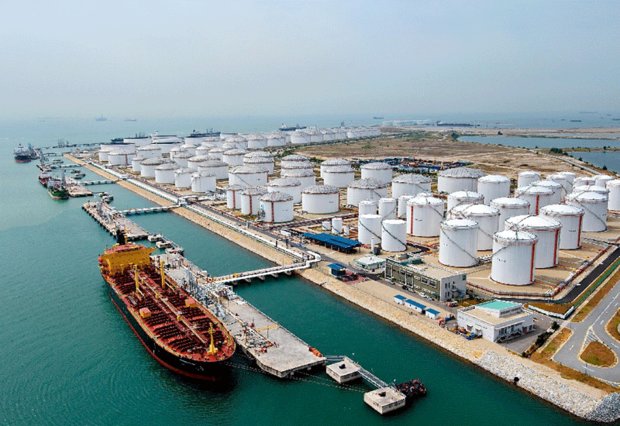What happened to 'maximum pressure'? White House orders freeze on Iran sanctions
The directive to suspend action against Iran was distributed to the National Security Council, the Treasury Department and the State Department. It also affects US policy toward China, which purchases 90% of Iran's oil exports. Some officials view the move as merely a slowdown to reassess future measures, while others fear it signals a broader suspension.
Israel Hayom
Jun 2, 2025
The directive came last week from White House spokesperson Karoline Leavitt, who instructed the National Security Council, the Treasury Department and the State Department to cease all new actions targeting Tehran. A source close to the White House said Trump's pressure campaign is now "stuck in place."
The order to freeze sanctions, issued without a specified end date, followed the last-minute blocking of routine Treasury Department sanctions. Since then, at least six additional sanctions packages have been delayed, and no new American sanctions against Iran have been announced since May 21.
Disarray in the National Security Council
That the order came from the White House spokesperson, rather than from the National Security Council or the Treasury Department, reflects growing dysfunction within the administration. The National Security Council has been thrown into chaos after the Trump administration sent more than 100 staffers on leave. Responsibility for new policy has not been clearly divided among agencies, and the council's communications team is reportedly disintegrating, according to CBS News.
Asked for comment, the White House did not deny the suspension. Instead, Deputy Spokesperson Anna Kelly said in a statement that all new decisions regarding sanctions would be announced by the White House or relevant government agencies.

China purchases over
90% of Iranian oil exports.
The freeze affects not only Iran, but also the administration's policy toward China, which purchases over 90% of Iranian oil exports. Japan, Europe, India and Southeast Asia are also impacted. It remains unclear whether the freeze applies solely to new sanctions or also to enforcement of existing ones.
Divisions within the administration
There is internal disagreement over the scope and intent of the directive. Some officials believe the policy is merely a pause to evaluate future sanctions amid sensitive nuclear talks and that it has been interpreted too broadly. Others argue that senior foreign policy officials were blindsided by the comprehensive nature of the suspension.
This has prompted officials to ask a key question: why ease pressure now, when it was that very pressure that brought Iran to the negotiating table, and when recent sanctions had just begun to disrupt Iran's oil exports to China?
Iran, critics argue, is using the talks to stall and seek relief, all while resisting US demands. A new report from the International Atomic Energy Agency shows Iran continues to enrich uranium and misled inspectors about its nuclear activities for years.
Iranian Foreign Ministry Spokesman Esmail Baghaei said Monday that Iran would have to assess whether the US had shifted its position on sanctions, which "we have yet to see." He added that the US must be clear about how it plans to lift the sanctions, to ensure past mistakes are not repeated, as part of efforts to resolve the long-standing conflict over Iran's nuclear ambitions.

No comments:
Post a Comment